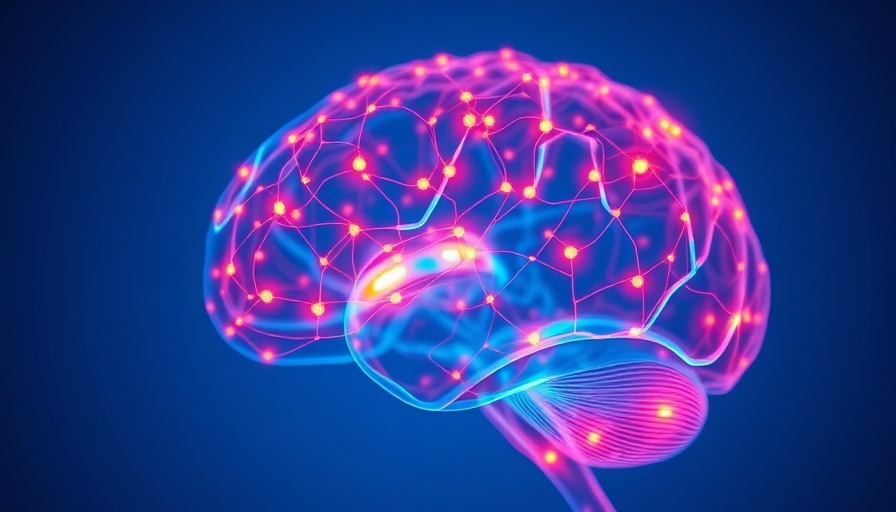
Slowing Alzheimer’s Progression: A Breakthrough Approach
In a major advancement in the fight against Alzheimer's disease, researchers have identified a way to slow its progression in mouse models by targeting an inflammatory pathway within the brain. This innovative approach revolves around the cGAS-STING DNA-sensing pathway, which plays a critical role in the neuroinflammatory response associated with Alzheimer’s.
Understanding the Science Behind Alzheimer's
Alzheimer's is characterized by the buildup of amyloid beta plaques and tau protein tangles that negatively impact cognitive function. Chronic stress caused by these proteins can activate the brain's immune response, leading to further inflammation and neuronal damage. By specifically knocking out the STING protein, scientists have observed that the inflammatory response can be significantly toned down. The research team at the University of Virginia found that this targeting led to decreased amyloid and tau pathology in treated mice, who showed improved cognitive abilities during maze tests.
Significant Improvements in Cognitive Function
The study revealed that mice with the STING deletion performed remarkably better in cognitive tests, particularly in the Morris water maze, allowing them to navigate and locate hidden platforms with greater speed and efficiency. Impressively, these improvements were evident even before traditional Alzheimer’s symptoms were observable. With healthier microglia that exhibited a calmer demeanor, the treated mice showcased less damage and enhanced brain function.
The Importance of Gender Considerations in Research
One caveat noted by the researchers is the exclusive use of female mice in their tests, which raises questions about how these findings might translate to male models or humans. Since gender differences can affect disease manifestation and treatment responses, extending this research to male mice could offer additional valuable insights.
Future Implications for Neurodegenerative Diseases
This research not only sheds light on Alzheimer's but also opens the door for potential applications in other neurological diseases characterized by similar inflammatory pathways. By harnessing this newfound knowledge, scientists can explore more treatment options that focus on the immune system’s role in neurodegeneration.
Empowering Yourself with Knowledge
For those on a journey toward healthier living, understanding scientific advancements in diseases like Alzheimer’s can inspire proactive health choices. While research progresses, individuals may find comfort in learning about potential preventive measures, lifestyle adjustments, and cognitive health strategies.
As humanity takes strides in understanding complex diseases, staying informed is paramount. Knowledge translates to empowerment, enabling us to make choices that benefit our wellbeing. Whether it’s diving into the latest health research, advocating for dementia awareness, or adopting mental health practices, every small step taken promotes a healthier future.
 Add Row
Add Row  Add
Add 




Write A Comment